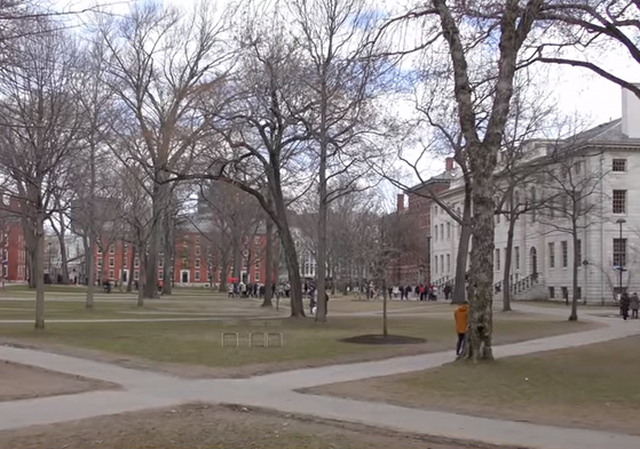Harvard’s End-Run Around Affirmative Action Could Backfire
“none of this has stopped Harvard and other elite schools from giving post-SFFA racial discrimination the old college try”

Professor Jacobson predicted that Harvard would seize on a particular line in the Supreme Court decison on Affirmative Action.
Dennis Saffran cites it here at City Journal:
Standing in the Schoolhouse Door
Alabama governor George Wallace infamously proclaimed “segregation now, segregation tomorrow, segregation forever” and stood in the schoolhouse door to try to block the integration of the University of Alabama in defiance of the Supreme Court’s landmark Brown v. Board of Education ruling and other court orders. Harvard University is a bit more subtle.
After the Court ruled against it in its June Students for Fair Admissions (SFFA) decision, striking down racial preferences, Harvard seized on one line at the end of Chief Justice John Roberts’s majority opinion to hint at the Ivy League’s version of the South’s “massive resistance” to Brown. “Nothing in this opinion,” Roberts wrote, “should be construed as prohibiting universities from considering an applicant’s discussion [in an admissions essay] of how race affected his or her life.” Ignoring the language immediately after this, that “universities may not simply establish through application essays . . . the regime we hold unlawful today,” Harvard issued a statement within two hours of the decision, quoting only the first sentence and sarcastically adding, “We will certainly comply with the Court’s decision.” …
Students applying to Harvard are smart enough to understand the obvious allusion to the Court’s decision, and thus also smart enough to understand how the reference to “a diverse student body” makes crystal clear which “life experiences” Harvard insists on hearing about from every applicant. And the 200-word limit does not allow enough space to develop how “that student’s courage and determination” in overcoming discrimination is “tied to that student’s unique ability to contribute to the university.” Harvard might as well have written: “Tell us your race in 200 words or less.”
Does this mean that Cornell law professor William Jacobson was right when he predicted that Harvard would take the “narrow opening” provided by the Court’s essay reference and “drive an affirmative action truck right through it”? Not necessarily. Rather, by so obviously defying the Court’s admonition that colleges may not use application essays as a ruse to maintain racial preferences, the smart guys and gals at Harvard may have outsmarted themselves, paving the way for a swifter end of that regime than anyone had anticipated.
 DONATE
DONATE
Donations tax deductible
to the full extent allowed by law.









Comments
“by so obviously defying the Court’s admonition that colleges may not use application essays as a ruse to maintain racial preferences, the smart guys and gals at Harvard may have outsmarted themselves, paving the way for a swifter end of that regime than anyone had anticipated.”
How so? Please explain. All I see is the same old thing. The elites do whatever they want as if the rules don’t apply to them, and get away with it.
It’s pretty obvious. The Supreme Court explicitly said “You can use the essay to give preference to people on the basis of their individual experience with racial issues, but you can’t use them simply to determine someone’s race. By asking for an “essay” of under 200 words they’re thumbing their noses at those words, because 200 words just isn’t enough to describe what the Supreme Court okayed. So they will be found liable when the next suit comes up.
I’ll believe that when I hear jailhouse doors go *clang*.
There’s no crime involved. It’s a civil matter. Someone is going to sue, and they’re going to win.
“Disguised Affirmative Action” cases will be needed to be identified and challenged,
Otherwise, it will be the same old story,
Remember, Lois Lerner knew Obama wanted to shut down conservative non-profits.
Lois gave the non-profits Hell.
It was a huge battle to get the conservative non-profits their tax-exempt status.